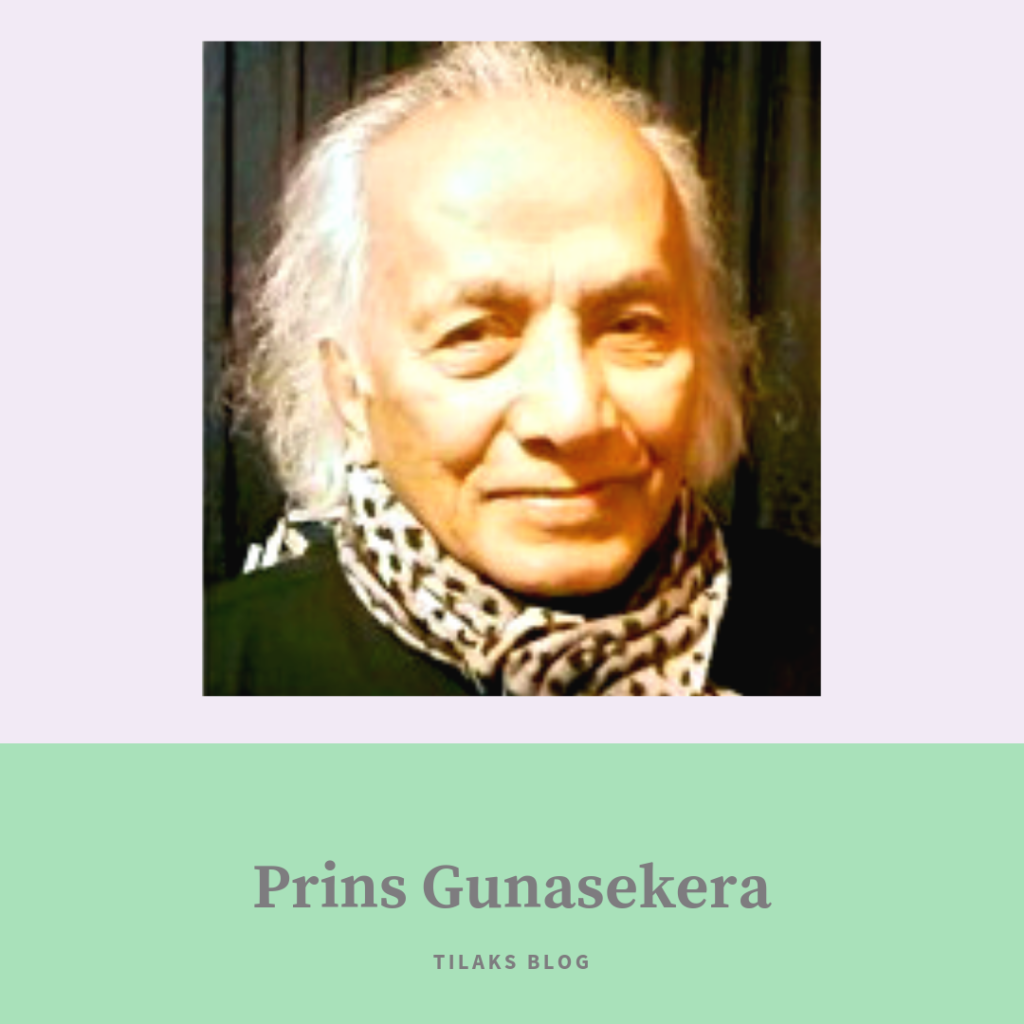Sinhala script by Devsiri P. Hewavidana in London
TRANSLATED BY DR. TILAK S. FERNANDO
My father, D. C. Hewavidana, was the Superintendent at Waulugala Estate, Imaduwa, during the 1960s. It was an era when the whole country was in turmoil, due to a general election being held immediately after the assassination of the Prime Minister, the late S.W.R.D Bandaranaike – not even after four months of his demise. Our family lived during this period in the Habaraduwa electorate.
Four Gunasekeras, including a powerful SLFP Minister D.S Gunasekara, contested the general election for Habaraduwa Parliamentary seat. However, supporters of the Government, as well as those who supported the opposition political party spoke only about one of the Gunasekeras, and it was none other than Prins Gunasekera, from the
ELECTION
S.W.R.D. Bandaranaike achieved an outstanding victory at the 1956 General Elections. Prins Gunasekera was considered as the strategist and the brains behind S.W.R.D Bandaranaike’s victory. All of the farmers (Paddy) in Habaraduwa electorate were exceedingly fond of Prins; he was popular as the architect behind Philip Gunawardena’s Paddy Land Act (Kumburu Panatha), which was ratified in Parliament during the Bandaranaike’s M.E.P regime.
Prins became very popular after the ratification of the ‘Kumburu Panatha’in Parliament. He was also considered as a budding politician who could feel the pulse of the ordinary folk and, worked for the sake of the poor man. That very humble quality made Prins so popular to the extent that even some of the Habaraduwa SLFP supporters agreed that “ Prins should be the best candidate to be elected to Parliament.”
The Tea Planters in the South, meanwhile, were getting worried about Prins, from Kathaluwa Village, being a young and energetic candidate nominated from the M.E.P. They were under the impression that if and when Prins were to be elected as a Member of Parliament, the plantation industry would suffer immensely, as he would be certain to introduce stringent regulations against the tea estate owners and start working for the welfare of the estate workers. If that were to take place, planters feared they would go bankrupt! Consequently, such foregone conclusions made all tea planters and estate owners to support the UNP candidate, B.D.A.Gunasekera, who used his monetary powers to capacity, with the help of his supportive criminal gangs.
MANAGEMENT DECISION
All male workers, at Wilehena, Morrisons, Adduna Keleand a few other Tea Estates, were suddenly ordered to wear Green Bush shirts, and women to wear green Jackets to work by the estate management. Those poor workers, therefore, had no option but to obey such orders because of the fear of losing their jobs, which ended up everyone having to spend extra money on green shirts and jackets, made out of their puny wages. I was quite young at the time, and even in my tiny developing mind, it struck me as a totally prejudiced act.
Prins amplified such undignified actions, by the Management of the above-mentioned estates at M.E.P political meetings held at the Imaduwa main junction.
Many speakers at M.E.P meetings, emphasised that ‘the new M.E.P government would nationalize all the tea estates, and distribute all profits out of tea estates to workers.’
Once a batch of female ‘tea pluckers’, whilst on their journey home from work, wearing their green jackets, spontaneously stopped by an M.E.P political meeting, just out of curiosity. But, the very moment the Manager of these Planters came to know about it, they decided to withdraw the free lorry transport service for all female tea pluckers. This made all of the female workers have to walk, up to four miles in the morning, to arrive at the estates for a hard day’s labor, and then again to return home after work. Despite all such hardships, Habaraduwa poor folk supported Prins sincerely for his human qualities.
MEMBER OF PARLIAMENT
During the March 1960’s election campaign, my father, D. C. Hewavidana, organized a fleet of vehicles and gathered about 200 workers from the Waulugala Estate, all of which wearing green shirts and caps, went around Habaraduwa electorate, shouting slogans and distributing hundreds of leaflets. The motorcade had to pass through Harumalgoda, prior to reaching Habaraduwa town. However, my father was unaware of a massive M.E.P rally in progress at Habaraduwa. When the motorcade arrived, the leader of the M.E.P. Philip Gunawardena, was on stage profoundly criticizing the UNP. The entourage had no choice, but to bring the motorcade to a halt right in front of the M.E.P meeting.
It was a moment where a major riot could have taken place, between two opposite political party supporters. At that very moment, Prins grabbed the microphone from Philip Gunawardena quickly, and started to announce
“Brothers! right now, a UNP motorcade has arrived on this very spot, and the gentleman who is seated in the front seat of the leading lorry is Mr. Hewavidana, Superintendent of Waulugala Group, who is my close friend. As much as we have the right to go on demonstrations and visit homes seeking support from the people in the electorate for our M.E.P, candidate, they too have a democratic right to conduct their political campaign in whatever manner for the UNP candidate. Therefore, brothers, could you please allow them to pass through peacefully”.
Lo and behold, it was amazing how a large gathering of die-hard supporters of an opposition leftist party allowed the UNP motorcade to pass through peacefully. They, indeed, did it without even having to throw a single stone at the UNP following. While the motorcade was leaving, I could see my father waving at Prince Gunasekara, who waved back at him. Prins Gunasekera demonstrated humility and compassion as a politician on that very moment. ‘What a gentleman Prins was’, everyone would have concluded
Despite all persecution by the rich tea planters and landowners, Prins Gunasekera was elected as a Member of Parliament on a Sunday, 19thMarch 1960, with a majority of 117. He never had to spend any money to win an election, but his only aim was to win over peoples’ hearts by understanding their needs and problems.
Lanka Viththi CommentL
Daya Ananda Ranasinghe, the Editor of Lanka Viththi, a Sinhala tabloid published in the UK, and distributed worldwide, was a senior journalist attached to the Lake House Group of Newspapers at the time. He described the
“ During the 1960 era, our people did not have the faintest idea about human right or what it meant. Innocent folk
Prins Gunasekera’s ethical and moral qualities emerged in 1965 when Dudley Senanayake became the Prime Minister in a new UNP-regime. As a member of the oratorical team at Ananda College, Colombo, Prins had won a gold medal for public speaking. With such experience and a background, he became the most vociferous member during parliamentary debates. Although Prins Gunasekera was not the type to carry knives into the parliament building, or throw a concoction of chilli powder at other members in the august assembly, yet he became the most feared member of parliament during intense debates as his speeches were effective and blunt to the point to make the opposition speakers knuckle under, including J.R. Jayawardena and Dudley Senanayake.

To be continued……
Pic credit: Google





